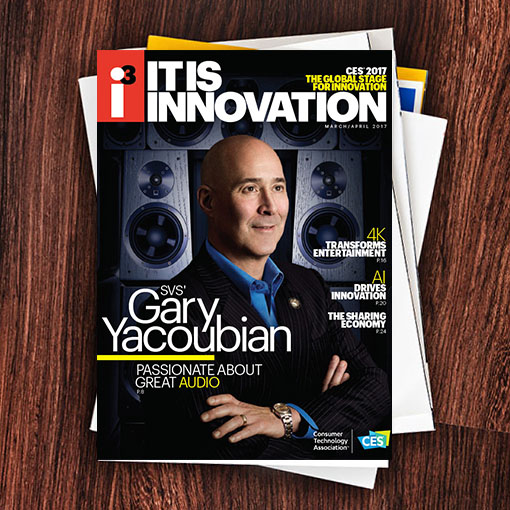3. Augmented Reality (AR), Virtual Reality (VR), Artificial Intelligence (AI), and Machine Learning (ML) displays and networks are emerging. You can tell the importance of a category by looking at the fight for talent – and the AI/ML recruits are in highest demand, with companies like Google looking to fill their pipeline.
4. 5G, the next generation technology telecom infrastructure is a huge opportunity. How will telecom operators evaluate and implement new technologies such as 5G? Intel introduced the ‘first’ 5G modem enabling 5G spectrum trials and deployments worldwide. This modem also overlaps with Intel’s driverless eforts.
5G was also the centerpiece of Qualcomm’s initiatives around its new Snapdragon processors. Steve Mollenkopf, Qualcomm CEO, said in his CES keynote that billions of mobile devices with extraordinary power are uniting with advancements in robotics, artificial intelligence, driverless vehicles and nanotechnology. “5G isn’t an incremental improvement in connectivity, or even just a new generation of mobile. 5G will be a new kind of network, supporting a vast diversity of devices with unprecedented scale, speed and complexity unlike anything humankind has ever seen,” he said.
Qualcomm’s independent 5G study found that 5G’s full economic effect will be realized by 2035 worldwide, producing up to $12 trillion worth of goods and services. The 5G value chain (OEMs, operators, content creators, app developers and consumers) could generate up to $3.5 trillion in aggregate revenue by 2035 and support up to 22 million jobs.
5. Enterprise mobility and business process management are changing. Enterprise productivity, connectivity, IoT, machine learning and big data are central to unified workspaces and an on-demand economy. For example, at CES vertical sectors introduced products and services for consumer retail and ecommerce that enable building omnichannel customer paths so that transactions can be made from anywhere on any device and inventory can also be managed on any device.
6. The app economy is here but the complexity of mobile applications is increasing.
7. Mobile data revenue is the driver of investment in innovation, new experiences, and redefining the network. Access, apps, advertising and OTT services are expected to dominate more than 90 percent of the revenue base in 2017 in North America, Japan, Korea and Western Europe.
8. Security, privacy, and encryption are interrelated. How will tech companies, telecom operators and governments manage the security, privacy and network implications from encryption? Given the growth of cybercrime and hacking, there will be a lot of commercial activity and opportunities in this space.
9. Mobile financial transactions. The rise of viable global mobile payment and commerce solutions will enter the consumer consciousness in 2017. Apple, Amazon, and startups are making inroads as well as an array of FinTech and cryptocurrencies.
10. Tech companies are laying the groundwork for M&A activity. The AT&T-Time Warner deal is pending, while in 2016 Qualcomm and Softbank acquired NXP and ARM, respectively. Eureka Park was packed with investors looking for startups particularly related to mobile.

i3, the flagship magazine from the Consumer Technology Association (CTA)®, focuses on innovation in technology, policy and business as well as the entrepreneurs, industry leaders and startups that grow the consumer technology industry. Subscriptions to i3 are available free to qualified participants in the consumer electronics industry.